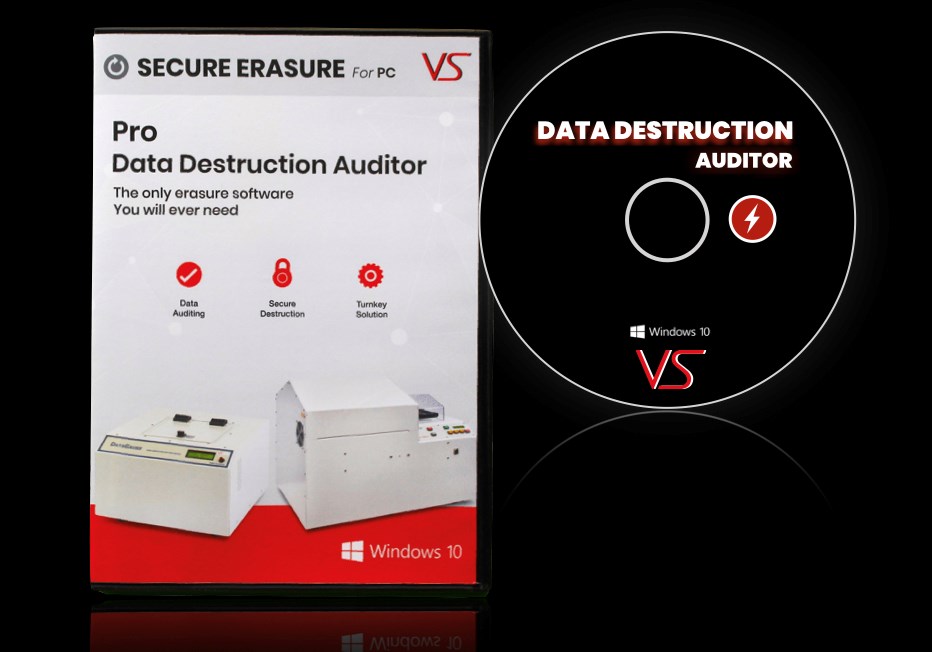How Robust Data Destruction Improves Your Overall Cyber Security Steps
How Robust Data Destruction Improves Your Overall Cyber Security Steps
Blog Article
The Value of Effective Data Devastation Practices in Shielding Sensitive Information and Ensuring Computer Security
In a period where data breaches are increasingly usual, the importance of reliable information damage techniques can not be overstated. Organizations face significant dangers when sensitive info is inadequately taken care of, possibly resulting in unapproved gain access to and severe financial effects. Applying durable information damage methods not just mitigates these threats however additionally straightens with legal conformity needs, making certain that organizations support their reputation and foster customer trust fund. The question stays: what details techniques can be used to improve these techniques, and just how can organizations effectively incorporate them right into their overall cybersecurity framework?
Recognizing Information Devastation
Comprehending data destruction is important in today's digital landscape, where sensitive details can quickly be compromised. Efficient data damage includes not merely making sure but removing files that data is irretrievable via extensive approaches. This procedure is essential for companies that handle personal customer details, intellectual property, or inner files, as any type of violation can bring about severe economic and reputational effects.
Information destruction encompasses numerous methods, including shredding physical media, degaussing magnetic storage devices, and utilizing software-based services that overwrite information multiple times. Each technique serves a specific purpose and should straighten with the level of sensitivity of the details being disposed of. Physical destruction is frequently preferred for hard drives consisting of highly confidential information, while software application methods may suffice for much less delicate information.
In addition, sticking to sector standards and laws, such as the General Data Defense Policy (GDPR) or the Medical Insurance Transportability and Accountability Act (HIPAA), is necessary for conformity and to alleviate lawful risks. Organizations should establish a durable data devastation plan, train workers on best methods, and on a regular basis examine their procedures to make sure that all delicate details is thrown away firmly and successfully.
Dangers of Inadequate Practices
Inadequate data damage techniques expose companies to considerable dangers that can have far-ranging effects. When delicate info is not correctly disposed of, it continues to be prone to unauthorized accessibility, which can cause information breaches and identity burglary. Such cases not only compromise the safety and security of individuals but also stain the organization's online reputation, leading to a loss of client trust fund and potential economic effects.
Moreover, regulatory compliance is significantly stringent in many markets. Failing to abide by information destruction laws can result in hefty penalties and lawful actions against organizations. These penalties can draw away and strain financial sources focus from core business operations.
In addition, the abuse of residual data can bring about copyright burglary or corporate espionage, endangering affordable benefits (data destruction). The influence of poor information damage expands beyond instant financial losses; it can also cause lasting damages to brand stability and market setting

Organizations must identify that data security is not exclusively about avoiding violations; it additionally incorporates the accountable monitoring of information throughout its lifecycle. Overlooking efficient data destruction protocols can have disastrous effects, emphasizing the requirement for robust actions to mitigate these risks.
Best Practices for Data Damage
Carrying out efficient information destruction techniques is crucial for securing sensitive info and preserving conformity with regulative standards. Organizations should adopt a multi-faceted approach to guarantee that information is irretrievable, thus avoiding unapproved gain discover this access to and prospective violations.
First, information need to be categorized based upon level of sensitivity, permitting organizations to use ideal destruction techniques customized to the level of risk. For digital information, utilizing software-based data-wiping tools that abide by sector standards can effectively overwrite existing data. Physical damage approaches, such as shredding or degaussing, are vital for tools that store sensitive details, ensuring total obliteration.
Establishing a clear information retention plan is crucial, detailing for how long different kinds of info must be kept before damage. Normal audits of information storage space systems are also required to determine obsolete or unnecessary information requiring removal.
Moreover, training workers on the significance of data damage and the details protocols to adhere to fosters a society of security within the organization. Lastly, preserving documentation of data damage refines gives responsibility and supports conformity with external regulations and internal plans. By sticking to these finest methods, organizations can considerably reduce the threats related to information exposure.
Legal and Compliance Considerations

Failing to abide by these policies can result in severe penalties, including substantial penalties and reputational damages. Organizations should implement a durable information devastation plan that straightens with these legal structures and offers clear standards on the proper approaches of information disposal, whether physical shredding or digital cleaning.
Additionally, preserving documents of information destruction activities is necessary for demonstrating conformity during audits or inspections. By focusing on legal and conformity factors to consider, companies can boost their data safety and security position and foster depend on with customers and stakeholders, ultimately adding to a more helpful hints secure information management environment.
Advantages of Effective Data Destruction
Effective information devastation techniques expand beyond plain conformity; they use significant advantages to companies that prioritize them. By making sure that delicate details is irretrievably ruined, companies alleviate the risk of information breaches and the potential financial repercussions connected with them. This aggressive strategy not just safeguards versus unauthorized accessibility but also boosts the overall credibility of the company in the eyes of stakeholders and customers.
Executing durable information damage techniques, such as physical devastation of storage devices or sophisticated data cleaning methods, adds to the fortifying of a company's cybersecurity posture. data destruction. It minimizes the likelihood of copyright burglary and secures proprietary information, consequently keeping an one-upmanship in the market

Conclusion
In verdict, efficient information damage practices are necessary for securing delicate information and boosting overall computer safety. Inevitably, a dedication to robust information devastation strategies promotes a society of obligation, consequently strengthening an organization's cybersecurity pose and preserving client count on.

Report this page